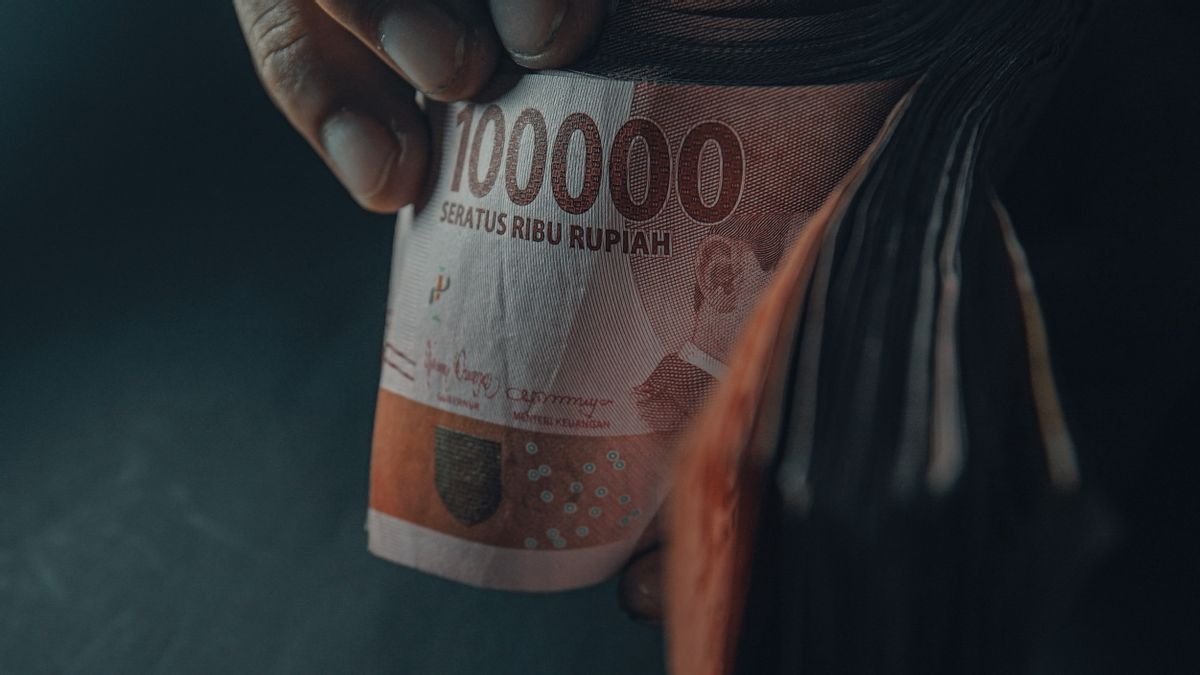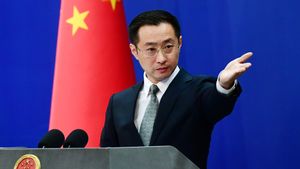JAKARTA - The government, through the Ministry of Finance, remains committed to continuing the construction of a number of strategic infrastructure even though it is currently in a pandemic condition.
Most recently, Minister of Finance Sri Mulyani throughout 2021 plans to spend a budget of no less than Rp. 27.58 trillion to establish various public facilities through funds sourced from State Sharia Securities (SBSN).
It should be noted that this year's allocation of SBSN project financing has increased from the 2020 allocation of IDR 27.35 trillion.
Meanwhile, the 2021 development budget will work on 847 projects from 11 ministries and institutions, including the Ministry of PUPR, Ministry of LHK, Ministry of Education and Culture, LIPI, BSN, LAPAN, Ministry of Defense, Ministry of Agriculture, and the Indonesian National Police.
Do not forget the Minister of Finance advised that it is important to ensure the technical and policy aspects in managing the SBSN project financing properly, prudently and accountably.
"We can also continue to be careful because the State Sharia Securities are debt securities. This means that the project is indeed financed with debt, but it is a debt that we can continue to protect. The performance and quality of the project must be good. Because he is financed by instruments based on sharia, of course we have more moral obligations to protect him, ”he said in a virtual press conference Wednesday, January 20.
In addition, he also appealed that the high quality of the implementation of the SBSN Project is a must that cannot be compromised even in the midst of a pandemic.
"I ask to maintain the quality of the project, maybe a little delay due to the pandemic, but that does not mean the quality and discipline of completion will be delayed," he said.

The government is optimistic and hopes that the SBSN of this Project in the future can become one of the main pillars of the APBN instrument for national infrastructure development as well as the main instrument in the national financial market. So that the main target of accelerating infrastructure development and realizing the aspirations for the growth and development of the Islamic economy in the country can be realized.
The development of the SBSN since 2013SBSN for infrastructure project financing (Project Financing Sukuk) is an alternative infrastructure financing that has been carried out by the Government since 2013.
The issuance of SBSN for project financing can also ensure that the financing made by the government is used productively and the benefits are directly felt by the community.
The SBSN Project Financing itself has shown significant developments. As an illustration, in 2013 the project financed through SBSN was only Rp. 800 billion.
Whereas for the 2020 period, the value jumped to Rp. 27.35 trillion. From the perspective of the institutions that use funds, it has also increased from one in 2013 to 17 echelon I units from nine ministries and institutions.
"This increase cannot be separated from the advantages of the design of the SBSN financing model compared to other sources of funds, namely, among other things, that the proposal procedure is also easy and simple," said Sri Mulyani.
In addition, the administration system for the implementation of the SBSN project is claimed to be relatively easy and simple.
"Availability of SBSN project funding is guaranteed by the government until the end of the project implementation contract," added the Minister.
For information, in 2020 or the 7th year of project financing through SBSN, the government said that it had successfully carried out various strategic projects. For example, the Trans Sulawesi (Parepare - Makassar), Trans Sumatra, and double track South Java railway infrastructure.
Then it was also disclosed about the construction of the Youtefa Bridge in Jayapura and the Balang Island Bridge to support Trans Kalimantan connectivity.
Still safeIn fact, the State Sharia Securities or SBSN is a debt financing instrument whose management must prioritize the principle of prudence.
Quoting the Ministry of Finance's report in the January 2021 edition of the State Budget, it was revealed that the total debt incurred by the government until December 2020 was IDR 6,074.5 trillion, with 85 percent of which were government securities (SBN).
In addition, the total debt of more than IDR 6 quadrillion reflects 38.6 percent of the ratio of gross domestic product (GDP) in the same period. This percentage increases when compared to the position in December 2019 with a ratio of 29 percent to GDP.
However, the debt ratio at the close of last year's books was still relatively safe because Law Number 17 of 2003 concerning State Finances provides a limit of up to 60 percent of the GDP ratio.

In addition, the government's ability to fulfill its payment obligations has never been delayed, let alone accelerated. This capability is also recognized by Bank Indonesia (BI). In its release, the monetary authority revealed that debt generated through SBN was also heavily influenced by the inflow of foreign funds into the country.
"Investors' confidence is maintained so as to encourage foreign capital inflows in the government securities (SBN) market, as well as withdrawal of part of the foreign loan commitment to support the handling of the Covid-19 pandemic and the National Economic Recovery (PEN) program," said BI recently.
In general, the ratio of external debt (ULN) to GDP at the end of November 2020 was 39.1 percent, relatively stable compared to the ratio in October 2020 which was 38.8 percent.
"The structure of Indonesia's external debt remains healthy, supported by the application of prudential principles in its management," said BI.
The English, Chinese, Japanese, Arabic, and French versions are automatically generated by the AI. So there may still be inaccuracies in translating, please always see Indonesian as our main language. (system supported by DigitalSiber.id)










